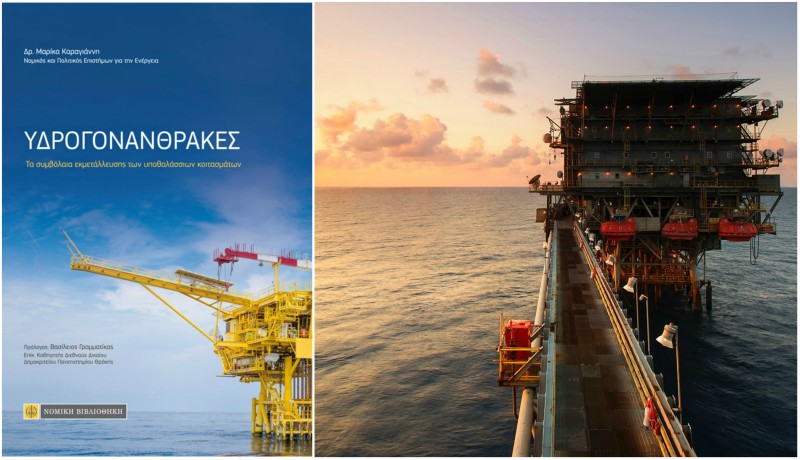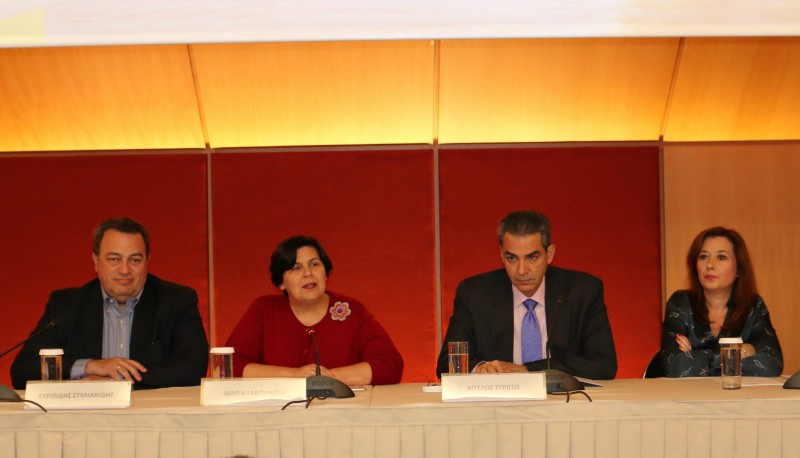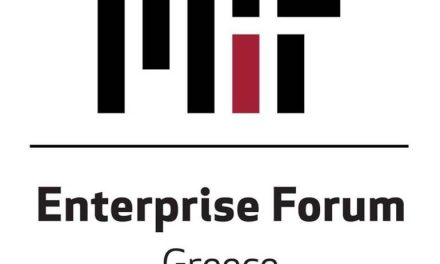Dr. Marika Karagianni is a legal and international relations expert, specialized on European and international energy issues, focusing on Russia, the Caspian- Central Asia, East Med and MENA (Middle East- North Africa) regions. She holds a PhD on “The institutional aspects of off-shore hydrocarbons development in the Caspian Sea” from the Democritus University of Thrace and a Post- Doc on “The EU Southern Gas Corridor as an alternative to Russian gas supplies for Europe” from the University of Peloponnese. She has served as an advisor on energy diplomacy and relations with Russia/ CIS to Ministers and Deputy Ministers of Foreign Affairs of the Hellenic Republic (2000 -2006) and is currently a permanent expert on energy at the Hellenic Government Administration. She was also a lawyer in Athens (1998- 2006). She has been trained on energy security at the Harvard Kennedy School of Government, Energy Program, NATO SCHOOL OBERAMMERGAU and at the Baku Summer Energy School of Azerbaijan Diplomatic Academy. She is also a visiting lecturer and an external research associate at the Department of Economic Studies- University of Thessaly (Volos), a research associate at IENE (Institute of Energy of South Eastern Europe) and a member of the Hellenic Society of International Law and International Relations. She is the author of the book “Hydrocarbons: the contracts for offshore field development” (Nomiki Vivliothiki, 2018) and at this stage she is finishing the second book on the role of conflicts in the energy development in the Eastern Mediterranean and the Caspian Sea.
Marika Karagianni spoke* to Greek News Agenda about Greece’s comparative advantages in the energy sector and the importance for Greece to move from being hydrocarbons importer to producer and possibly exporter.
1) You have recently presented your book titled: “Hydrocarbons: the contracts for the development of the offshore reserves.” What is the importance of the Caspian Sea energy market for Greece? Could Greece adopt any ‘best practices’ from these countries?
Thank you very much for your question. This book is basically an enhanced version of my phd thesis, which discussed the legal status of the Caspian Sea, the contracts for hydrocarbon exploration and extraction of the offshore fields and how those practices could be applied in our country. Published by Nomiki Bibliothiki, it is the first book on this subject that has been written in Greek, and this alone is very important for Greek bibliography.
The Caspian Sea is one of the world’s largest oil bearing and producing areas. Offshore oil fields were first discovered in 1895 in Azerbaijan’s offshore sector. We must note that during World War II, Hitler coveted Baku’s oil fields but Greek resistance and the Russian winter got in the way. His goal was to reach the Caspian Sea in order to supply his whole empire with Baku’s oil. Those countries have a long tradition and established practices in exploring and extracting hydrocarbons. They might still be considered to be developing countries and in many things we may think that they lag behind when compared to the ‘developed’ world, however, they have a comprehensive and effective legal framework that covers the energy sector in its entirety: exploration, extraction, production, refinement, transportation via pipelines and trading of oil and natural gas. This legal framework is based on Production Sharing Agreements. Notably, the model applied in Azerbaijan sets an example for the international energy market given the fact that the world’s largest companies have for 25 years been using this contracting model for their investments in Azerbaijan.
Take BP for example. BP alone has investedaround 25 billion dollars just in Azerbaijan since 1994 by using this specific legal contract. This provides a good example for European countries to follow, and Greece in particular, which has just begun serious exploration and extraction efforts. A specific legal type of contract should be adopted; in the case of Greece not necessarily the Production Sharing Agreement but the license agreement or the already adopted lease agreement. The existing lease agreement constitutes a sound legal framework, a good contract for the development of the Greek reserves; nonetheless it needs to be preserved and be a guarantee for all foreign companies wishing to invest in Greece’s energy sector.
 www.pexels.com
www.pexels.com
2) What are Greece’s comparative advantages in the energy sector?
We occupy a major geostrategic position between East and West as far as land and maritime borders are concerned. We have the capability to become not an energy hub – as they usually say – but a natural gas transportation hub. Given that Greece is a geographically small country with a small market, it is difficult to have its own energy stock market and set bid prices for natural gas, as for example does Turkey. However Greece has the potential to import natural gas from various sources and various countries and from different routes either for domestic consumption or for transit to Europe.
The fact is that at the EU level our country has achieved immense diversification of gas supply sources compared to other EU countries, such as Hungary e.g., which depends exclusively on Russian natural gas. Only 65% of our consumption is imported from Gazprom. We have had for many years long-term contracts with the Algerian state owned company Sonatrach and we import LNG, that comes in at Revithousa’s LNG terminal and covers a significant part of our country’s needs, especially in winter when demand is high. We also import limited quantities of natural gas from Phase I of the Shah Deniz project in Azerbaijan via the Greek-Turkish pipeline Karacabey – Komotini, inaugurated by the former PMs,Konstantinos Karamanlis, and his Turkish counterpart, Recep Tayip Ergodan, in Kipi of Evros, in 2006, and operating since 2007.
As of next year we will be receiving 1billion cubic meters (bcm) of natural gas from Azerbaijan’s Shah Deniz Phase II via the TAP pipeline, which is part of the EU’s Southern Gas Corridor. The TAP pipeline constitutes a big economic and geostrategic upgrade for our country, given that Greece is currently the biggest natural gas transportation hub of the Southern Gas Corridor. TAP’s biggest section runs through Northern Greece, namely Western Thrace and Macedonia, before it reaches Albania. It represents the biggest foreign investment over the past 10 years in Greece, in the midst of the crisis; it has beenpolitically supported byall governmentsand it constitutes a significant investment for the country. There are prospects of importing natural gas in the future from the eastern Mediterranean, either via the East Med pipeline, if implemented, or via LNG in Revythousa. This way, Greece can become a natural gas and LNG transportation hub in the wider Mediterranean and Southeastern European region.
3) How will Greece contribute to Europe’s energy security?
As I mentioned earlier, we have diversified the routes and sources of supply. Beyond that, via the TAP pipeline and as a part of EU’s Vertical Corridor, we have the capability to export natural gas mainly through the IGB, namely the Greek – Bulgarian pipeline, to Bulgaria and potentially in the future to Romania as well. Also, we may be able export natural gas tο Northern Macedonia through the interconnector Nea Mesimvria – Gevgelija, which the current government is promoting. During the Greek PM’s recent visit to Skopje, the possibility for the construction of a new pipeline supplying Northern Macedonia with gas was discussed. We have the possibility and the prospect of constructing an FSRU in Alexandroupolis in order to receive LNG from various sources. The US has already expressed an interest and actually two companies, Tellurian and Cheniere have expressed their readiness to supply this specific FSRU Terminal with LNG. It becomes obvious that all these investments and infrastructures promote Northern Greece in economic and geostrategic terms to play an important role in the energy supply of all neighboring countries in Southeastern Europe.
4) Both the exploration and extraction of hydrocarbons require large scale investments in Greece, which, on the one hand, wishes to increase its revenues, and on the other, to attract investors by way of motives. How easy is it to maintain this balance in order to have a win-win situation for both the country and the investors? What would you suggest in Greece’s case?
This is the subject of my book that was recently presented at Nomiki Bibliothiki. What is important is to have an established legal and tax framework that would secure both the interests and revenues of the country that owns the fields, as well as those of the foreign companies that sign 20-25year contracts and carry out large scale investments. It should be noted that Greece’s offshore fields, especially south of Crete, are in a very demanding area and any future drilling and extracting will be conducted in ultra-deep waters exceeding 4000 meters, which requires advanced technology and proper equipment. To give you an idea of the cost, just one offshore drilling such as that currently conducted in Cyprus’ reserves by Exxon Mobil and ENI, with an average price of 80 dollars per barrel, costs approximately 150 million dollars. In order for company investments and expenditures to be secured, Greece needs to maintain its existing legal and tax status. Law 4001/2011, together with the Hellenic Hydrocarbon Resources Management (HHRM), secures a good framework that needs to be preserved in order for foreign companies to have proper motivation and security.
5) What are the prospects of the drillings south of Crete? What does it mean for Greece to move from being hydrocarbons importer to producer and possibly exporter?
There have been hydrocarbon indications in the wider marine area south and southwest of Crete in the seismic surveys carried out during the 2012 open door procedure, which is why we mapped two blocks, those of South and Southwest of Crete. Exxon Mobil has expressed interest for those two offshore blocks and there has been an initialization of an agreement. The Ministry of Environment and Energy needs to continue the procedure as quickly as possible without any further delays, with more seismic surveys carried out in order to obtain more geological and geophysical data. Subsequently, we need to proceed with the legal processes for the signing of the lease agreement with Exxon Mobil or any other company interested in order for the exploration and extraction to be carried out.
As I already mentioned, the sea area south of Crete is very demanding. The company that will undertake the project will make a huge investment. Exxon Mobil has the equipment and the know-how for such drillings. The Greek side needs to proceed as quickly as possible so that Exxon Mobil and other companies do not lose interest. These two blocks are very promising for the future. However, until we have further seismic survey and a drilling we cannot talk about a confirmed field.
 From the book presentation (photo courtesy of Nomiki Vivliothiki)
From the book presentation (photo courtesy of Nomiki Vivliothiki)
6) Where are Greece’s energy sources?
From the initial research carried out by Hellenic Petroleum and its precursor, Public Petroleum Corporation (DEP-EKY), we have two confirmed fields. The first one was discovered in 1981 and it is situated in Katakolo, while the second one was discovered in 1989 and is situated in Epanomi, outside of Thessaloniki. Prinos is the third confirmed extraction area whose exploitation belongs to private energy company Energean Oil and Gas. We have a small, approximately 2000 barrels per day, oil production from Prinos, while initial production by Prinos’s E field has begun yielding a further daily output of 1000 barrels.
These are the confirmed areas, while the rest are at seismic survey and initial drilling stages. Repsol together with Energean have undertaken Ioannina’s Block and are planning to conduct their first drilling in 2020. The first step is drilling and then we can see whether there is oil and if it can be extracted, meaning that an extraction area cannot be confirmed until the first drilling. Energean has also undertaken Katakolo, where drilling will begin in 2020. Thereon, it depends on the rest of the consortiums, on Hellenic Petroleum which recently signed the agreement for Block 10 at Kyparissiakos Gulf, on Repsol and Hellenic Petroleum that have undertaken two offshore blocks in the Ionian Sea, to see how this process moves on. Open door covers the whole marine area from the North Ionian to the southwest of Crete.
7) What is the process of hydrocarbon extraction?
An extraction may be successful, but it could also be fruitless when we come upon non-commercial hydrocarbon deposits, in which case the company’s investment fails, something whichispart of the investment risk. This is why the host country must provide an efficient legal framework securing foreign company rights. Thus, if there is a confirmed adequate extraction area, then the company must, in line with the signed contract, submit a work programme to the Ministry of Environment and Energy for approval, following which, the operations of the company or joint venture may commence.
By operations we mean the installation of required equipment, floating drilling platforms, the import of the extraction equipment and the signing of all employment contracts. In the first years, primary production – i.e., the so-called cost oil – covers the initial investment costs of the foreign company. In other words, besides the revenues from VAT and income taxation for the government, the rest of the earnings are directed to the company in order to cover its initial investments.
When the profit phase of the production commences, the host country, namely the country that owns the hydrocarbon fields, receives its agreed revenue share. On the basis of the agreement, the revenues for the state from exploration and extraction are quite a significant. Firstly, following the signing of the agreement, the foreign company disburses to the Greek state the so-called signature-bonus, as agreed upon in the bilateral negotiations. Those are revenues that go directly to the Greek budget. Consequently, during production, the company bears the cost of 25% VAT as per the lease agreement along with income tax. Thus the Greek government has three sources of revenues through the exploration and extraction process.
* Interview by Christina Fiorentzi














